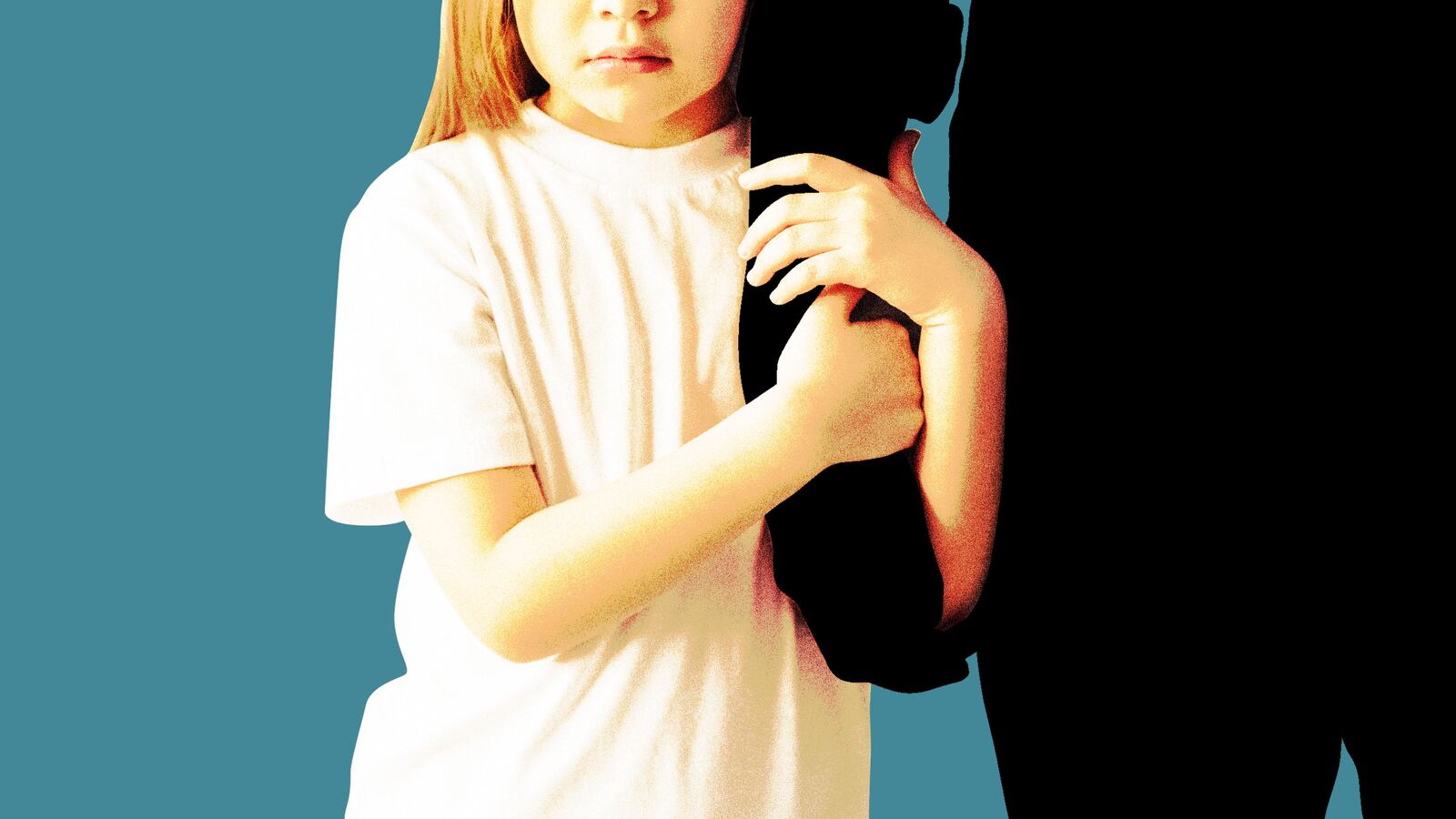DeAundrea Jackson has mixed emotions when it comes to her father’s death. The 25-year-old Savannah, Georgia native lost him to suicide at 13 years old, while she and her mother and siblings lived away from him.
“I felt guilt, relief, hurt, shame and honestly a little betrayal,” she told The Daily Beast in an email. “Despite his mental illness and having to deal with all the came with it, he was still my father and was actually the parent I leaned on the most.”
She went to mandated counseling but still fell into a deep depression in the years that followed. In her words, she believed “no one could truly understand any of this.”
Jackson is part of a club that no one hopes to be a part of. One that Frances Beatrix Spade, the 13-year-old daughter of Kate Spade, and Ariane Bourdain, the 11-year-old daughter of Anthony Bourdain, became members of this week: people who lost a parent to suicide.
“Suicide is different than other loss because it’s so unexpected. There are so many unanswered questions, the main being ‘why?’ And sometimes it's a question that’s never answered,” said Janel Cubbage, LGPC Director of Suicide Prevention at Maryland’s Office of Health Promotion & Prevention. “People may learn things they previously didn’t know about their loved ones and it may cause them to question their relationship with that person.”
According to a Harvard paper, every suicide victim leaves behind at least six close survivors, many of whom are young adults or kids. The sudden death of a loved one is hard enough due to its complexity and untimeliness, but the stigma attached to the death by suicide can make coping with it that much harder. People may flock to their side, as it’s almost certain those who loved Spade and Bourdain will do for their children, but the support often tapers off as time goes by.
This is daunting for anyone grieving a loss over time, but it’s especially dangerous for this type of loss: children who lost someone to suicide are more likely to take their own lives the same way.
“People are really supportive right after the death—people are constantly checking in. Then they kind of move on,” Cubbage explained. “It’s important to maintain the support, reaching out, talking to them. Sometimes the second year is harder.”
These children deal with more than just a death of a parent. In addition to the child perhaps living in the actual scene of the death—half of suicides occur in the person’s home—it’s also common to sustain feelings of guilt, Cubbage explained. Experts say that these feelings are especially strong in children, who aren’t as mentally or emotionally developed as adults going through a similar loss. The guilt may leave them falsely thinking they could have prevented their parent’s death. And people are too afraid to talk about it with them. It may create a similar cycle of depression that took their parents’ lives in the first place.
This is why freelancer Melissa Blake decided to pen an open letter to Frances Beatrix when news broke of her mother’s death. Blake lost her father to suicide at 21 years old.
“I want to tell her all the things I wish someone had told me more than a decade ago, about trying to navigate a world where everything is foreign and nothing looks even remotely familiar. In trying to find an ounce of stability in all the chaos that you never signed up for,” Blake wrote.
“People don't want to talk about it and sometimes, you're even shamed if you are ‘too vocal’ about what happened to you,” she told The Daily Beast. “The societal stigma attached to suicide makes it really hard for survivors to feel heard sometimes.”
Though she has struggled for 15 years since her father’s death, she attributes her progress to therapy, and the support system she, her mother, and sister created between one another. Other survivors point to the importance of families supporting each other and openly communicating, particularly because the stigma makes it so easy to ignore.
One person, who asked to remain anonymous, told The Daily Beast that suicide runs in their family, and they attempted to take their own life years after an uncle and a great-grandparent died the same way. They explained that the stigma allowed the topic to be swept under the rug in their family.
“We had excuses for how they died. We were told to tell lies to cover the truth. Years later, long after I had healed from my own dark days, my own mother made a feeble attempt to take her life after my father died,” they said. “My son, at 14, attempted it, too.”
“I called a counselor who guided me through it. When the day finally came, I just held on to him for what ended up being hours that turned into days. We cried together, and eventually I felt ok to let go. I talked him off the ledge because I recognized where he was going. A counselor kept him from going back.
“Now he tells me when the ‘dark thoughts come’ and we talk them through. I feel so unqualified. But in many ways, I am an expert in this dance. My greatest fear is that someday I won’t be there when the dark thoughts are too strong for him to resist. My greatest hope is that he is now strong enough to recognize someone else who might be in need and save them. There is a strange satisfaction for someone who survived their own death to save someone else. I hope he is strong enough to see that.”
Dr. Marissa Long, a Licensed Clinical Psychologist in Southern California and founder of Thrive WISE, said that family silence around suicide is common, but the worst way to deal with it.
“If there has been a suicide, even if it’s your great aunt you never met, or sibling or parent, it introduces it as an option,” she explained. “Whatever the parent was struggling with, [may cause their child to think,] is that something I might deal with, and if I do, is that the same road I would take?”
To combat this, Dr. Long says to talk about it.
“It’s an opportunity, interestingly enough, to broach topics with kids early about health and mental health—not in the way of cancer or diabetes but depression.”
Actress and activist April Hernandez Castillo, who starred in the Hilary Swank film Freedom Writers, tells her story for this reason. She attempted to take her life twice, once while suffering from postpartum depression and another after dealing with an abusive relationship.
If it’s hard for many to imagine being in such a dark place, she talks about her story to help others understand.
“At that moment, you're not really thinking about anyone else. You're thinking of your suffering and how tired you are. It can sound selfish but it's not. In your head, you're making the right decision,” she explained to the Daily Beast.
She said she wants Frances Beatrix, Ariane Bourdain, and other people who have lost parents to suicide to know that it has nothing to do with them. And will even be open about her struggle with her own daughter.
“It was not their fault. They had no fault in that action,” she said.
It took Blake a while, but after facing her grief from losing her dad, she agrees.
“You wouldn't think it was your fault if your parent died from cancer, would you? Suicide works the same way.”
Of course, each person, child, teen, or young adult, will grieve in their own way, but consistency in support is key, ranging from talking about their loss a month or a year after the death, to just doing things with them. Because, after the intense media cycle around Kate Spade and Anthony Bourdain, their children will hold onto the pain. Which is why the conversation needs to go even deeper, not just for the sake of those we’ve lost, but for the kids left behind. Their lives depend on it.
“I’m glad someone is bringing awareness to others affected by suicide besides the victim, because in all honesty, we get the worst of it,” Jackson said. “I have lost more than just my dad to suicide. But in due time, things will get better.”
Blake echoed that sentiment in her letter to Spade’s daughter:
“I'd tell [Frances] that it's going to be OK. It doesn't seem like that now—and it might not for quite some time—but Frances will come out on the other side,” she wrote. “There will be a day when she'll think of her mother and the suicide will not be the first thing that pops into her head.”





